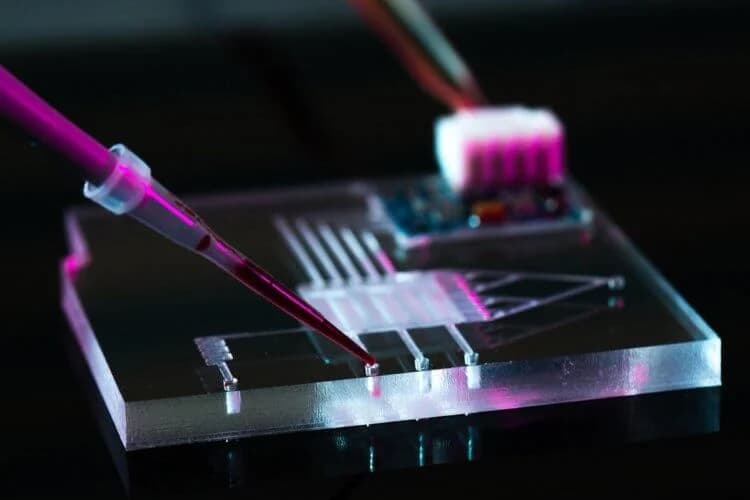Nanotechnology, the engineering of materials at an incredibly tiny scale of around 1 to 100 nanometers, is opening up new frontiers in energy innovation. At the nanoscale, materials can take on unique optical, electrical, and physical properties that researchers are harnessing to create advances in how we generate, store, and use energy.
From nanotech-enhanced solar cells to high-capacity batteries enabled by nanomaterials, scientists are developing solutions that could transform our energy infrastructure and enable cleaner and more renewable energy sources. Exciting breakthroughs are happening rapidly in labs worldwide.
In this blog post, we will highlight some of the most promising recent nanotechnology developments that could have a significant impact on our energy future. From major improvements in solar power, energy storage, and hydrogen production driven by nanomaterials and nanoengineering, nanotech is emerging as a disruptive force in the energy sector. While still in early stages, these technologies showcase the potential for nanotech to deliver the next generation of energy innovations we need to combat climate change and build a greener world.
Nanotech for Better Solar Power
One major area where nanotechnology is making strides is in solar photovoltaic technology, enabling solar panels and cells that are more efficient, affordable, and versatile.
Researchers are using nanomaterials like quantum dots to improve solar cell efficiency beyond traditional limits. Quantum dot solar cells can absorb more sunlight and convert it to electricity by using nanoparticles tuned to different bandgaps.
Thin film solar cells using nanoscale semiconductor layers allow solar manufacturers to create affordable, lightweight and flexible solar panels. As a more cost-effective alternative to rigid silicon panels, thin film nanotech solar could enable mass adoption.
Companies are also developing nanotech-enabled solar window coatings and paints that can harvest energy from the sun while still maintaining transparency. These would allow buildings to potentially generate solar power without dedicated panels.
Self-cleaning nanotech solar coatings are also being worked on, which use nanostructures that repel dust/dirt and improve light absorption. This could reduce solar panel cleaning needs and maintenance costs significantly.
With these advances, nanotechnologies are poised to make solar energy more efficient, accessible, and low-cost in the future.
Advances in Nanotech Batteries
Nanotechnology is also leading to major improvements in energy storage solutions, including enhanced batteries for electric vehicles, consumer electronics, and grid-level storage.
Researchers are using nanomaterials like graphene to develop better performing lithium-ion batteries. Graphene forms a flexible, highly conductive nano-scaffolding that enables faster charging and longer lasting batteries.
Nanowire batteries made of nanoscale wires of silicon and germanium are also being researched. Their huge surface area enables more power and stability than conventional batteries.
For grid energy storage, nanotech ultracapacitors can rapidly charge and discharge thanks to nano-structured electrodes with high surface area. This makes them suitable for short term energy storage needs.
Nanotech has also enabled flexible, thin and lightweight batteries. Using nanomaterial-infused composites, these batteries can take any shape desired. This could lead to new possibilities for wearable, implantable and Internet of Things devices.
By harnessing the power of nanoscale materials, nanotechnology has the potential to provide the advanced energy storage solutions we need.
Nanotech for Hydrogen Storage and Production
Hydrogen is a clean fuel that could play a major role in a sustainable energy future. Nanotechnology is enabling more efficient hydrogen storage and production through nano-engineered materials and catalysts.
Researchers are using nanotubes and advanced nanomaterials like metal-organic frameworks to store hydrogen at higher densities and under safer conditions than conventional tanks. This could allow hydrogen vehicles to go farther between refuelings.
For hydrogen production, scientists are developing nano-engineered catalysts that improve the efficiency of extracting hydrogen from water. These nanocatalysts have a higher surface area and tunable reactivity through nanoscale engineering.
Nanotechnology has also enabled miniaturized hydrogen generators. Small-scale portable hydrogen fuel cells incorporated with nanotech could provide ultra-compact power sources for phones, laptops and devices.
More advances are being made in using nanoengineered compounds for on-site hydrogen generation. For example, certain nanocrystals can extract hydrogen from bio-derived fuels through low-energy chemical reactions versus electrolysis.
With nanotech-powered progress in hydrogen storage and generation, the hydrogen economy could become more viable.




